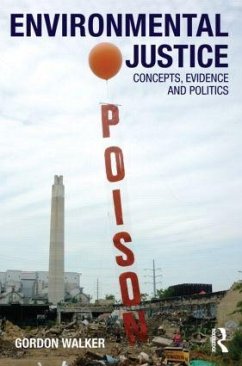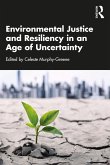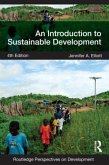Environmental justice has increasingly become part of the language of environmental activism, political debate, academic research and policy making around the world. It raises questions about how the environment impacts on different people's lives. Does pollution follow the poor? Are some communities far more vulnerable to the impacts of flooding or climate change than others? Are the benefits of access to green space for all, or only for some? Do powerful voices dominate environmental decisions to the exclusion of others?
This book focuses on such questions and the complexities involved in answering them. It explores the diversity of ways in which environment and social difference are intertwined and how the justice of their interrelationship matters. It has a distinctive international perspective, tracing how the discourse of environmental justice has moved around the world and across scales to include global concerns, and examining research, activism and policy development in the US, the UK, South Africa and other countries. The widening scope and diversity of what has been positioned within an environmental justice 'frame' is also reflected in chapters that focus on waste, air quality, flooding, urban greenspace and climate change. In each case, the basis for evidence of inequalities in impacts, vulnerabilities and responsibilities is examined, asking questions about the knowledge that is produced, the assumptions involved and the concepts of justice that are being deployed in both academic and political contexts.
Environmental Justice offers a wide ranging analysis of this rapidly evolving field, with compelling examples of the processes involved in producing inequalities and the challenges faced in advancing the interests of the disadvantaged. It provides a critical framework for understanding environmental justice in various spatial and political contexts, and will be of interest to those studying Environmental Studies, Geography, Politics and Sociology.
This book focuses on such questions and the complexities involved in answering them. It explores the diversity of ways in which environment and social difference are intertwined and how the justice of their interrelationship matters. It has a distinctive international perspective, tracing how the discourse of environmental justice has moved around the world and across scales to include global concerns, and examining research, activism and policy development in the US, the UK, South Africa and other countries. The widening scope and diversity of what has been positioned within an environmental justice 'frame' is also reflected in chapters that focus on waste, air quality, flooding, urban greenspace and climate change. In each case, the basis for evidence of inequalities in impacts, vulnerabilities and responsibilities is examined, asking questions about the knowledge that is produced, the assumptions involved and the concepts of justice that are being deployed in both academic and political contexts.
Environmental Justice offers a wide ranging analysis of this rapidly evolving field, with compelling examples of the processes involved in producing inequalities and the challenges faced in advancing the interests of the disadvantaged. It provides a critical framework for understanding environmental justice in various spatial and political contexts, and will be of interest to those studying Environmental Studies, Geography, Politics and Sociology.
"At last, the book we have been waiting for. Conceptually acute, empirically informed, and written with verve and refreshing honesty by an acknowledged international expert with years of experience in the field, Gordon Walker has produced the most distinctive contribution to the theory and practice of environmental justice in recent years." Professor Andrew Dobson, School of Politics, International Relations and the Environment, Keele University, UK.
"Moving beyond justice as a question only of distribution and procedure, to the distinct yet related notion of justice as recognition, Walker has produced an excellent, nuanced upper- level text with a rare analytical insight and a critical edge that has, for the first time, truly opened up the possibility of multiple spatial and political understandings of environmental justice." Professor Julian Agyeman, Department of Urban and Environmental Policy and Planning, Tufts University, USA.
"This useful work provides a synthesis, a review of the literature, and a history of the environmental justice movement. Recommended." - S.E. Wiegand, CHOICE, September 2012
"One of the main objectives of the book is the detailed analysis of these cases, in a clear and understandable way. This objective is perfectly accomplished, not only because each of the texts makes a persuasive case for employing the environmental justice perspective, but also because of their use of text boxes that summarize and clarify concepts related to the topic analyzed in each chapter." - Progress in Development Studies, Oscar Alfranca, Polytechnic University of Catalonia, Catalunya, Spain
"Moving beyond justice as a question only of distribution and procedure, to the distinct yet related notion of justice as recognition, Walker has produced an excellent, nuanced upper- level text with a rare analytical insight and a critical edge that has, for the first time, truly opened up the possibility of multiple spatial and political understandings of environmental justice." Professor Julian Agyeman, Department of Urban and Environmental Policy and Planning, Tufts University, USA.
"This useful work provides a synthesis, a review of the literature, and a history of the environmental justice movement. Recommended." - S.E. Wiegand, CHOICE, September 2012
"One of the main objectives of the book is the detailed analysis of these cases, in a clear and understandable way. This objective is perfectly accomplished, not only because each of the texts makes a persuasive case for employing the environmental justice perspective, but also because of their use of text boxes that summarize and clarify concepts related to the topic analyzed in each chapter." - Progress in Development Studies, Oscar Alfranca, Polytechnic University of Catalonia, Catalunya, Spain








